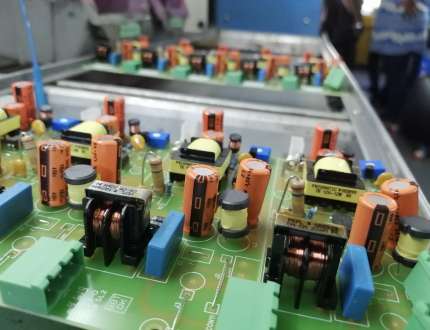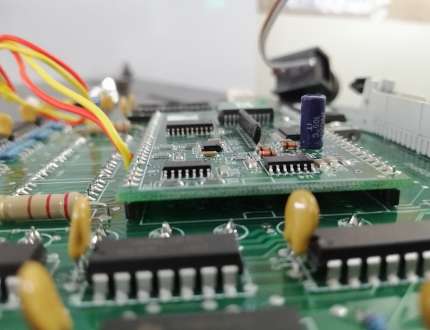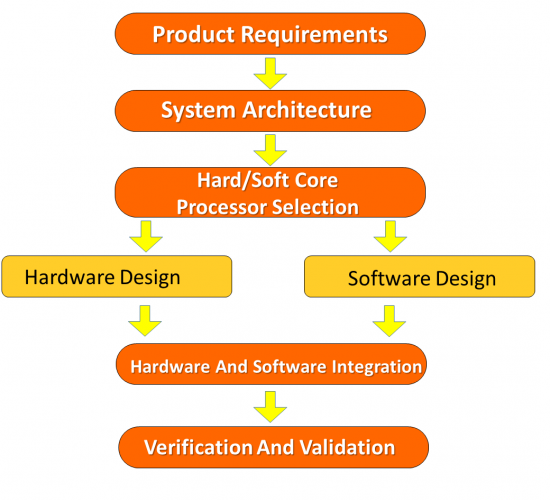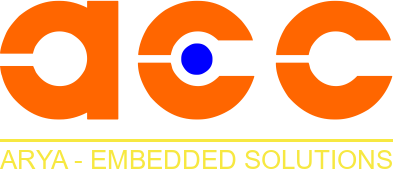Overview
There are Two Parts in Electronics Product Engineering:
1. Embedded Hardware Design
2. Embedded Software Design.
Embedded Hardware Design Systems Components
- The Power Supply is a Crucial Part of several Embedded Systems Circuits.
- Inside any Embedded System a mainframe is the leading brain.
- Memory.
- Timers-Counters.
- Communication Ports.
- Input and Output.
- Application Specific Circuits.
- Assembler.
- Emulator.
- Debugger.
- Compiler.
We at Arya possess trained and proficient hardware engineering team that enables us to deliver high speed PCB Design and embedded product design, Embedded Hardware Design rapidly.


Our Process
- Determine the Requirements.
- Design the System Architecture.
- Select the OS.
- Choose the Processor and Peripherals.
- Choose the Development Platform.
- Code the Applications and Optimize.
- Verify the Software on the Host System.
- Verify the Software on the Target System.

Embedded Hardware Design Challenges in IOT Product Development
- Design Key Design – Optimize various design metrics.
- Design metric – A measurable feature of an embedded system’s implementation.
- Common metrics – Unit Cost, NRE Cost, Size, performance, power, flexibility, time to prototype, time to market, maintainability.
- Unit Cost – Monetary cost of manufacturing each copy of the system, excluding NRE Cost.
- NRE Cost – NRE cost means non recurring engineering cost one-time monetary cost of designing the system.
- Size – Physical space required by the system.
- Performance – Execution time or throughput of the system.
- Power – Amount of power consumed by the system.
- Flexibility – Ability to change the functionality of the system without incurring heavy NRE cost.
- Time to prototype – Time required to build a working version of the system.
- Time to market – Time required to to develop a system to the point that it can be released and sold to customers.
- Maintainability – Ability to modify the system after its initial release, correctness, safety etc.
Key Features / Benefits with Arya:
- Architecture and Design.
- Component Bench marking and Selection.
- Multi core, multiprocessor based HW designs.
- Multi layer PCB design.
- Functional Test, Stress Test and DVPNR.
- Hardware Prototype Development and Testing
- Product Certification and Compliance.
- Enclosures and mold / tools designs.
- Low volume manufacturing.
- Value Engineering / BoM Optimisation.
- Component Obsolescence Management.
- Testing Fixture / Simulator Development for products.
- Easy embedded system design process
